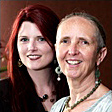"If you are not counted, you do not count." The health of every individual depends on disclosing sexual orientation and gender identity, so it is important to educate LGBT (lesbian, gay, bisexual, and transgender) people about the need for them to self-identify while at the same time creating a safe environment conducive for doing so."
Clinical Rationale
You might be wondering "why do I need to know something so personal? It will not affect the points I use and my office is open to everyone, so why ask?" This is a common response but, experts in this field assure us that by not asking we are not protecting people's privacy, but rather ignoring the unique needs of the population. The Institute of Medicine reports that numerous health disparities are faced by LGBT people and by asking for sexual orientation and gender identity on intake forms, we as health care providers can help end LGBT invisibility in healthcare. Discrimination of LGBT patients in health care is inarguable; numerous studies support this claim. The 2010 Lambda Legal Survey on Discrimination against LGBT People found that 56 percent of lesbian, gay, or bisexual individuals and 70 percent of transgender individuals experienced discrimination by health care providers. Yet, as acupuncturists we cannot right the wrongs of the Western medical system but, by showing that we are attentive and sensitive to who our patients are, we can start the healing.
Who Is A Sexual Minority?
 Sexual minorities are those that identify as gay, lesbian or bisexual. Keep in mind that identity is not the same as behavior or attraction. Thus, a person may engage in same-sex sexual behavior, or have attraction to same-sex people, yet not identify as gay, lesbian or bisexual. A recent Gallup survey (October 2012) reports that 3.4% of adults in the U.S. identify as LGBT. If you are not actively reaching out to this community and ensuring that your services are welcoming and inclusive you may be missing potential patients.
Sexual minorities are those that identify as gay, lesbian or bisexual. Keep in mind that identity is not the same as behavior or attraction. Thus, a person may engage in same-sex sexual behavior, or have attraction to same-sex people, yet not identify as gay, lesbian or bisexual. A recent Gallup survey (October 2012) reports that 3.4% of adults in the U.S. identify as LGBT. If you are not actively reaching out to this community and ensuring that your services are welcoming and inclusive you may be missing potential patients.
The Fenway Institute, an internationally-recognized interdisciplinary center in Boston with a mission is to ensure access to quality, culturally competent medical care for traditionally underserved communities, including LGBT people, has done much work in this area. In their publication Policy Focus: How to Gather Data on Sexual Orientation and Gender Identity in Clinical Settings they encourage the practice of asking these questions on routine intake forms. They recommend providers add questions to the section where respondents are asked about sex, date of birth, or other demographic questions. Fenway Health, a federally funded health center, tested two versions of the question in 2011 to discern the best way to ask this information of patients. It is always important to remind patients that the information they share will be kept strictly confidential.
The best practice recommendation for wording on sexual orientation for your intake form is:
Do you think of yourself as:
Straight or heterosexual
Lesbian, gay, or homosexual
Bisexual
Something else
Don't know
Who Is A Gender Identity Minority?
Gender identity is a more confusing topic for mainstream providers. A transgender individual is a person whose gender identity or gender expression differs from that assigned at birth. Although "T" (for transgender) is included in the "LGBT" acronym, gender identity is distinct from sexual orientation and is a mutually exclusive construct. In May 2003 we published the first article on transgender health for the acupuncture community (Read Part 1 here: www.acupuncturetoday.com/mpacms/at/article.php?id=28203 and part 2 www.acupuncturetoday.com/mpacms/at/article.php?id=28252).
The transgender community and our understanding of that community as healthcare providers have evolved greatly in the last decade. Yet, there is still not an agreed upon best practice for how to ask gender identity. For instance, the Centers for Disease Control and Prevention uses a one-question approach with the following response options: male, female, transgender male to female, and transgender female to male.
We prefer a multi-question format such as the below:
What is your gender?
Male
Female
What was your sex at birth?
Female
Male
Do you identify as transgender or transsexual?
Yes
No
Don't know or do not understand the question
If You Build It…
Making our practices accessible by providing inclusive language on intake forms is an important step. Additional ways to create welcoming clinics include adding LGBT brochures where you have other resources available and posting a visible non-discrimination statement. These statements typically have wording similar to "equal care will be provided to all patients regardless of age, race, ethnicity, physical ability, religion, sexual orientation or gender identity/expression." Review all your paperwork to ensure neutral terminology.
For example, when asking (on intake or in verbal conversation) about marital status instead ask about "relationship status" and include an option of "partnered" which provides a more inclusive opening for the LGBT patient especially in states where same-sex marriage is not legal.
When treating a transgender client, be sure that your questions have clinical relevance and are not simply feeding your curiosity. Remember, our patients should not be placed in a position to educate us. We must serve our patients by educating ourselves. Transgender individuals may have had traumatic experiences with medical providers- explain thoroughly before you touch anyone on the body and provide good draping techniques.
LGBT and health is a very important combination. Because the likelihood of nervous system problems in people with LGBT companies big. These people more often suffer from mental and neurological problems. Which lead to erectile dysfunction. The LGBT community support the long-known the company Ely Lilly which is struggling with the treatment of erectile dysfunction. As LGBT people who are fighting for their rights. Why Ely Lilly so popular among the LGBT community? And by the fact that buy cheap cialis online can be absolutely simple, fast and easy. Cialis is a phosphodiesterase inhibitor 5-th type. The principle of action of the drug is aimed at restoring a lost erection due to the blood flow to the sex organ. The enzyme phosphodiesterase (PDE) is involved in the regulation of vascular tone.
After being at the receiving end of competent sensitive compassionate care, LGBT patients are great source of referrals. Numerous opportunities exist to reach out directly to this community including tabling at events, providing lectures and workshops, and connecting with LGBT holistic providers.
Our medicine is an inclusive one that encompasses all, in keeping with the nature of the Tao. In the Analects of Confucius, we find the following sage advice: Make happy those who are near and those that are far will come.
Resources:
- Contact your local LGBT speaker's bureau for information on presentations
- The Fenway Institute www.fenwayhealth.org
- LGBT Health Resources www.lgbthealth.net
- Patient Non-discrimination Statements www.hrc.org/resources/entry/patient-non-discrimination-lgbt-inclusive-policy-statements-from-healt
Click here for previous articles by Elizabeth Sommers, PhD, MPH, LAc.
Click here for more information about Kristen E. Porter, PhD, MS, MAc, LAc.




